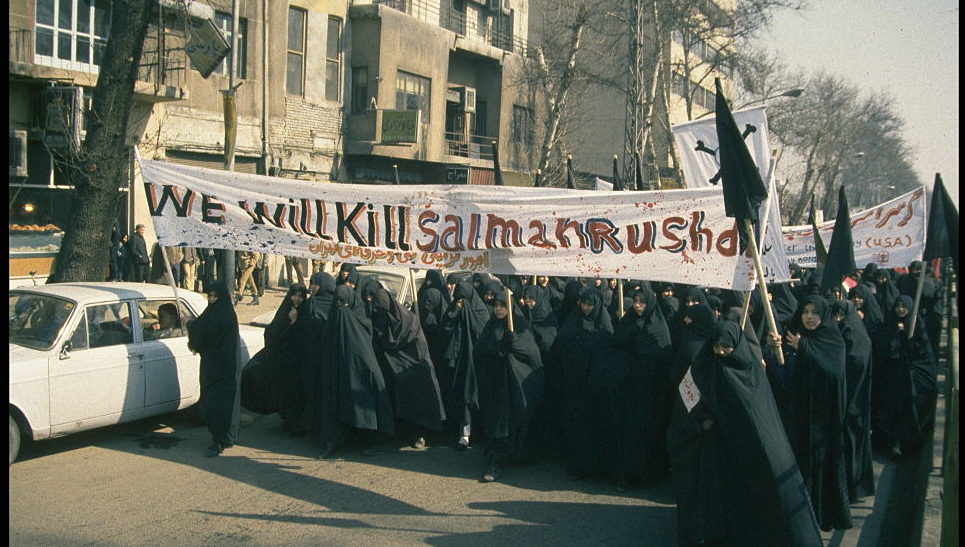Should we be surprised that the New York Times is yet to publish an op-ed on the Friday stabbing of novelist Salman Rushdie in New York state?
It doesn’t take a clairvoyant to guess the motive behind the attack. Rushdie’s assailant, Hadi Matar, was a 24-year-old American of Lebanese Shiite extraction whose social media presence is littered with praise for the Islamic Republic. He was arrested with a fake driver’s licence under the name “Hassan Mugniyeh”, presumably in honour of Imad Mugniyeh, the former top Hezbollah lieutenant suspected of planning the 1983 bombing of the US embassy in Beirut. Vice News reported on Sunday that Matar has been “in direct contact with members of Iran’s Islamic Revolutionary Guard Corps on social media”. As one Middle Eastern intelligence official put it,
A 24-year-old born in the United States did not come up with Salman Rushdie as a target on his own… Even an avid consumer of Iranian propaganda would have some difficulty finding references to Rushdie compared to all the other, modern enemies, designated by the regime.
However, most U.S. coverage of the attack has downplayed the Iran angle and focused instead on the issues of “free speech” and “censorship.” The Washington Post opinion section, for instance, has warned in general terms about rising threats to “freedom of expression”, the growing danger of “violent extremists”, and the clash between “Islamic fundamentalism” and the “foundational principles of the West”. The New York Times news section proclaimed that the stabbing had “renew[ed free speech debates”, while noting lamely that “law-enforcement officials have not publicly stated what motivated the attack”.
In this, they have followed the lead of the Biden administration, which initially condemned the stabbing merely as a “vicious attack.” On Sunday, Secretary of State Anthony Blinken finally mentioned Iran, condemning “Iranian state institutions” for inciting violence against the author but making no mention of Matar’s alleged links to the IRGC.
Compare the American press’s muted reaction to the Rushdie stabbing to its response to the October 2018 murder of Jamal Khashoggi by agents of the Saudi state, which received wall-to-wall coverage for more than a month and prompted the city of Washington, D.C.. to rename the street in front of the Saudi embassy “Jamal Khashoggi Way.” In that case, there was no hesitation to draw geopolitical lessons, with the Washington Post editorial board announcing that the murder “should spark a long-overdue recalibration of U.S. relations with Saudi Arabia and its reckless de facto leader, Mohammed bin Salman.”
What accounts for this divergence? The Khashoggi murder, of course, was seen as a way of discrediting Trump for his closeness with Saudi Arabia, which should not be discounted as a motive. But as Tablet’s Lee Smith detailed at the time, it was also a way for the Washington faction favouring geopolitical rapprochement with Iran — led by Robert Malley, the architect of the original Iran nuclear deal — to use the press’s anti-Trump sentiment to drive a wedge between the US and Riyadh.
Today, Malley is leading the Biden administration’s ongoing effort to negotiate a new deal with the Iranian regime. As Politico EU reported last week, the recently finalised draft text of the joint EU-US proposal would, among other concessions, significantly weaken sanctions on the IRGC. So a highly publicised, IRGC-backed assassination attempt against a world-famous author on American soil, occurring just as the US is attempting to finalise the deal, is the last thing in the world the Biden administration wants to be dealing with.
Luckily for the Biden administration, it can probably count on the press not to ask too many inconvenient questions — at least until after the deal is safely done.











Join the discussion
Join like minded readers that support our journalism by becoming a paid subscriber
To join the discussion in the comments, become a paid subscriber.
Join like minded readers that support our journalism, read unlimited articles and enjoy other subscriber-only benefits.
Subscribe